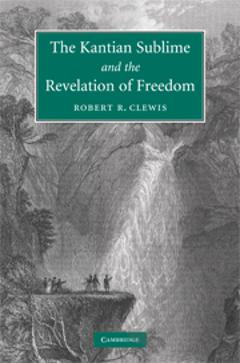The Kantian Sublime and the Revelation of Freedom
In this book Robert R. Clewis shows how certain crucial concepts in Kant's aesthetics and practical philosophy - the sublime, enthusiasm, freedom, empirical and intellectual interests, the idea of a republic - fit together and deepen our understanding of Kant's philosophy. He examines the ways in which different kinds of sublimity reveal freedom and indirectly contribute to morality, and discusses how Kant's account of natural sublimity suggests that we have an indirect duty with regard to nature. Unlike many other studies of these themes, this book examines both the pre-critical Observations and the remarks that Kant wrote in his copy of the Observations. Finally, Clewis takes seriously Kant's claim that enthusiasm is aesthetically sublime, and shows how this clarifies Kant's views of the French Revolution. His book will appeal to all who are interested in Kant's philosophy.
{{comment.content}}








 京公网安备 11010802027623号
京公网安备 11010802027623号